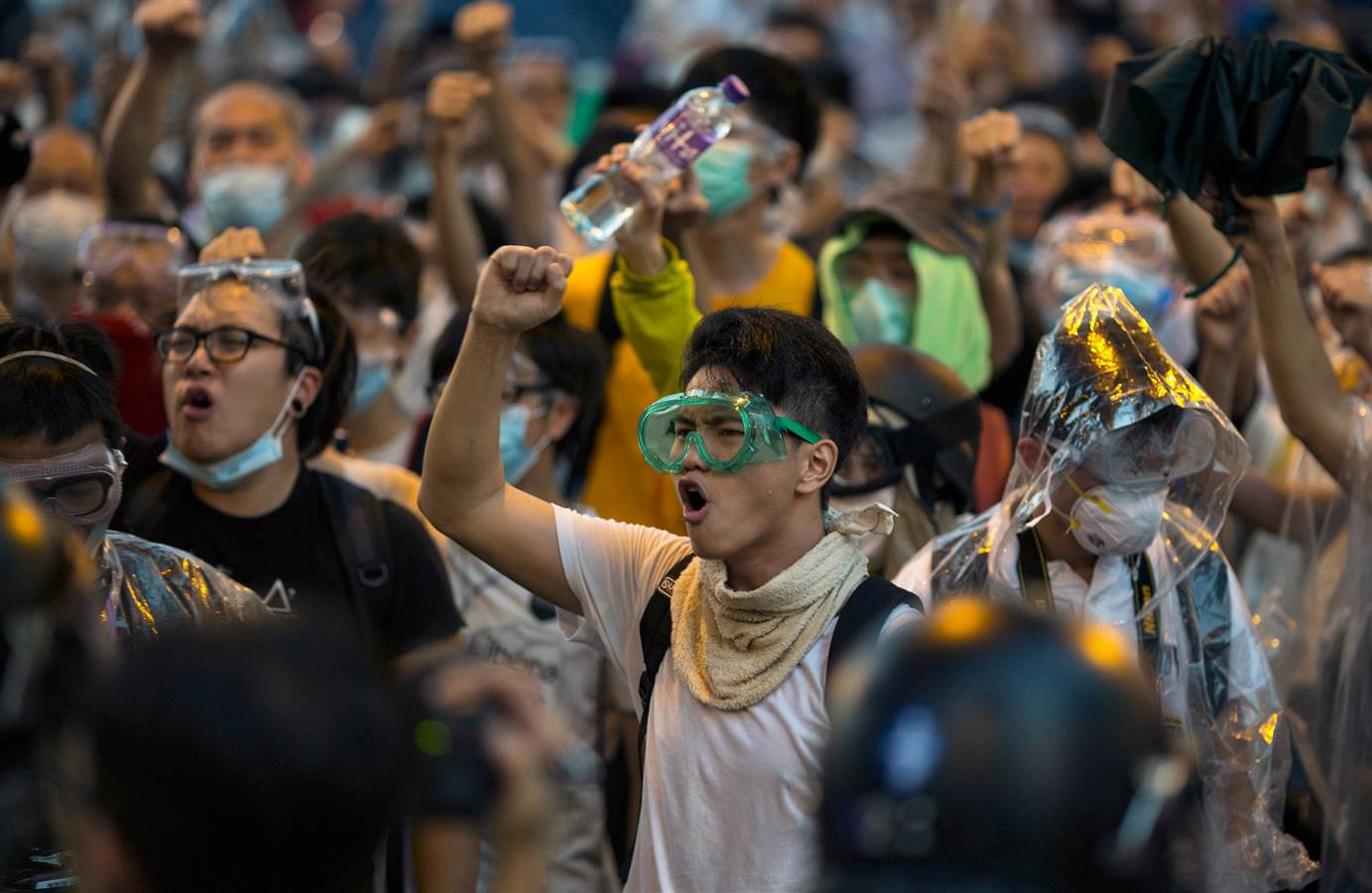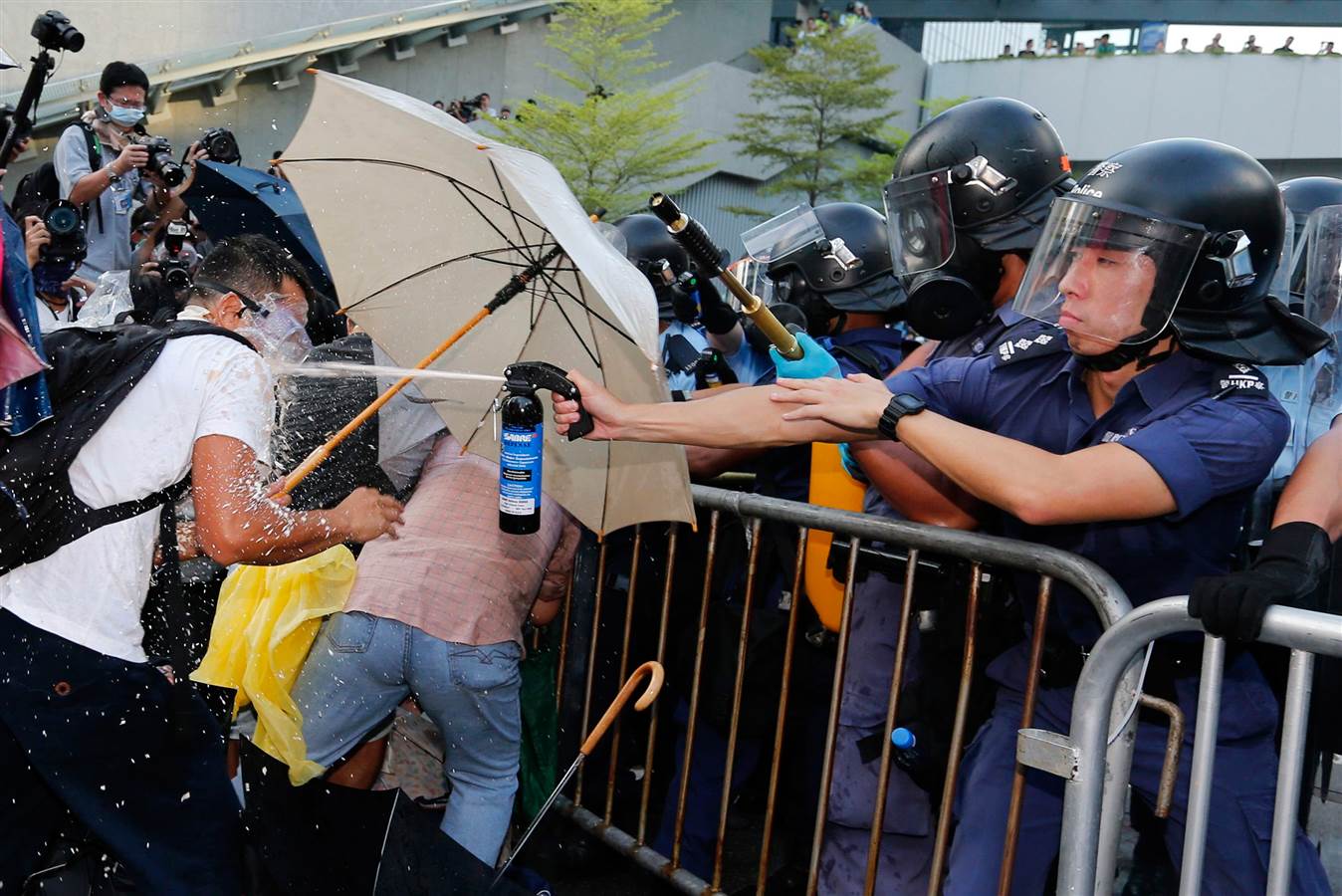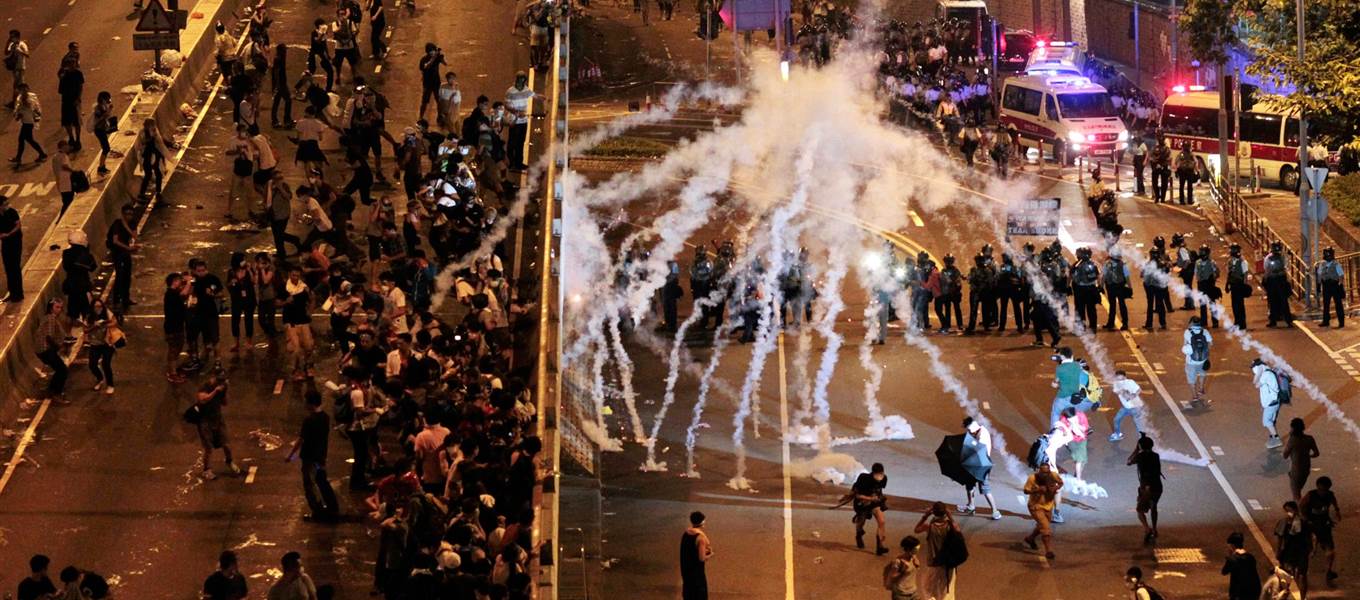
(TibetanReview.net, Sep30, 2014) – Making good on their promise to launch a civil disobedience movement in case China denies them the promised full democracy in the election of their next Chief Executive due in 2017, tens of thousands of protesters brought a central area of Hong Kong to a standstill late on Sep 27, reported theguardian.com Sep 28. Police fired teargas and launched baton charges, but the standoff continued into the early hours of the next morning.
The demonstrators, equipped with goggles and face masks to ward off teargas and pepper spray, flooded the streets around the government complex in Admiralty – a bustling commercial area in downtown Hong Kong – leading authorities to divert bus routes and shut down a subway station, the report added. They chanted for police to leave and for Leung Chun-ying, the city’s current chief executive, to resign.
There were repeated dispersals by the police and regroupings by the demonstrators.

Also, dozens of Hong Kong police charged pro-democracy protesters with pepper spray late on Sep 28 afternoon, reported Reuters Sep 28. It added that the charge pushed back the demonstrators who, however, did not flee. It added that the protesters were trying to break a police blockade that had shut in the core leaders of the Occupy Central protest group.
The theguardian.com report continued that many members of the initial surge left late Sep 28 night as the Hong Kong Federation of Students urged protesters to retreat, citing concerns that police might escalate their use of force, and reminding them that this will be a long battle. But thousands more remained at the scene at Admiralty.
The civil disobedience movement was originally planned to begin several days later, but Occupy Central, the main organizer, brought the protest’s starting date forward after a group of students, galvanised by a week of peaceful protest, invaded the city’s main government compound on Sep 27 night.
At least 34 people were injured in the clashes, while nearly 80 people were arrested since Sep 17, the report said.
The report cited Benny Tai, one of Occupy Central’s leaders, as saying the movement would continue until Leung resigned and Beijing changed its position on political reform.
In keeping with the provisions of Hong Kong’s mini-constitution, which lays down the terms on which Britain returned the currently Special Administrative Region to Chinese rule on Jul 1, 1997, China promised universal suffrage for the next chief executive election in 2017. However, the framework it announced on Aug 31 this year is so restrictive that it would effectively bar any democrat from standing for election. The two or three candidates allowed to stand will be vetted by a nominating committee composed largely of Beijing loyalists. Critics have called the arrangement a sham and an exercise in Iranian-style democracy. 
The former British colony is supposed to enjoy considerable autonomy under the “one country, two systems” framework, but many now believe that Beijing is bent on eroding its freedoms, such as independent courts and a free press. In a Jun 2014 white paper on Hong Kong, the Chinese government emphasized the “one country” aspect while being largely silent on the “two systems” principle.
As to what the civil disobedience movement is about, Michael Davis, a professor at Hong Kong University who was present during the clashes, has said, “We are talking about a society that has lived under freedom, a free press, and free markets for as long as they can remember. Now they are told they are going to have some kind of ‘mainland style’ democracy.”


